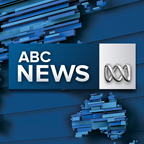
No woman has raced in Formula 1 for nearly half a century, but a group of 13- and 14-year-old female racers have just begun a journey that could end with them changing this fact.
And Australian teen Lana Flack is one of those in pole position to secure the breakthrough.
Loading Instagram content
More Than Equal, an initiative co-founded by former racer David Coulthard and seeking to find and develop a first female F1 world champion, recently welcomed the first six drivers to its development program.
The cohort, which includes Flack as well as four teen racers from Europe and one from Malaysia, took part in a training and assessment camp in Austria last week.
"This is just the beginning of a journey for this group and for our program," said More Than Equal's chief executive Ali Donnelly at a media launch earlier in the month.
"Together we want to show that with the right support early in their career, we can accelerate the development of talented female drivers so that they can have an equal opportunity to reach the top of the sport."
Flack created history in June last year during round three of the Australian Kart Championship, becoming the first female driver in 26 years to win an event at a multi-round Australian Karting Championship.
The last woman to race in Formula One was Italy's Lella Lombardi in 1976, with compatriot Giovanna Amati failing to qualify in 1992.
The sport now has its own all-female F1 Academy support series, backed by all the teams, and led by former racer Susie Wolff.
Austrian Ivonn Simeonova spoke for many about More Than Equal after stepping into the car.
"The number one aim is Formula 1, of course. And I think it's really good that we did this programme here to, like, bring the girls far enough that they can compete at the level that the boys do," she said.
"I think we need more girls in Formula 1 and in motorsport because we are all equal. And, I mean, we should get the same chances."
Slovakian Laura Bubenova said her ambition was also to be a role model.
British driver coach Sarah Moore, who previously raced in the now-defunct all-female W Series, said they faced the same challenges as the men when it came to racing.
"A lot of people seem to think for some reason that the females aren't physically capable of getting to Formula One," she added.
"I've had some really good chats with females that are involved with the RAF (Royal Air Force) and the G-forces that they pull (are) more than the G-forces that they pull in an F1 car.
"It's just adapting and developing the girls from a younger age to bring the strength in a younger age so that (they are) developing faster."
Sports content to make you think... or allow you not to. A newsletter delivered each Saturday.
ABC/Reuters









 Add Category
Add Category